Text
Understanding Endometriosis: Symptoms, Treatments

Endometriosis is a common yet often misunderstood gynaecological condition that affects millions of women worldwide. It occurs when the tissue that normally lines the inside of the uterus, known as the endometrium, grows outside of the uterus. This can lead to a variety of symptoms and can greatly impact a woman's quality of life. In this blog post, we will discuss the symptoms, treatments, and coping strategies for endometriosis, and why it is important to consult a gynaecologist in Indore for proper diagnosis and management.
Symptoms of Endometriosis:
The most common symptom of endometriosis is pelvic pain, which can range from mild to severe. This pain may occur before or during menstruation, during intercourse, or during bowel movements or urination. Other symptoms may include heavy or irregular periods, fatigue, bloating, and infertility. However, it is important to note that some women may not experience any symptoms at all, making endometriosis difficult to diagnose.
Treatments for Endometriosis:
There is no cure for endometriosis, but there are various treatment options available to help manage the symptoms. The first step is to consult a gynaecologist in Indore for a proper diagnosis. They may perform a pelvic exam, ultrasound, or laparoscopy to confirm the presence of endometriosis. Once diagnosed, the following treatments may be recommended:
1) Pain medication: Over-the-counter pain relievers such as ibuprofen or naproxen can help alleviate pelvic pain and cramping.
2) Hormone therapy: This involves using birth control pills, progestin-only pills, or other hormonal treatments to regulate the menstrual cycle and reduce pain.
Also Read: Best Laparoscopic Surgeon in Madhya Pradesh
3) Surgery: In severe cases, surgery may be recommended to remove the endometrial tissue and scar tissue. This can be done through laparoscopy, a minimally invasive procedure, or laparotomy, a more invasive surgery.
0 notes
Text
The Advantages of Laparoscopic Surgery in Treating Gynecological Conditions

Laparoscopic surgery, also known as minimally invasive surgery, has revolutionized the field of gynecology. It is a surgical technique that uses small incisions and specialized instruments to perform complex surgeries, rather than the traditional open surgery with large incisions. This technique has numerous advantages over traditional surgery, making it the preferred choice for treating gynecological conditions. In this blog post, we will discuss the advantages of laparoscopic surgery and why you should consider consulting a laparoscopic surgeon in Madhya Pradesh for your gynecological concerns.
1) Minimal scarring: One of the biggest advantages of laparoscopic surgery is minimal scarring. Unlike open surgery, where large incisions are made, laparoscopic surgery involves making tiny incisions, usually less than a centimeter in size. This not only reduces the risk of infection but also results in smaller scars that are barely noticeable.
2) Less pain and discomfort: The smaller incisions used in laparoscopic surgery cause less trauma to the surrounding tissues, resulting in less pain and discomfort for the patient. This also reduces the need for strong pain medications, making the recovery process quicker and more comfortable.
3) Shorter hospital stay: Laparoscopic surgery is usually performed as an outpatient procedure, meaning the patient can go home the same day or the next day after the surgery. This is in contrast to open surgery, where the patient may need to stay in the hospital for several days to recover.
Also Read: Best IVF Center in Indore
4) Quicker recovery: Due to the minimal invasive nature of laparoscopic surgery, the recovery time is significantly shorter compared to traditional surgery. This means that patients can resume their normal activities, including work, in a shorter period of time.
5) Reduced risk of complications: The use of small incisions and specialized instruments in laparoscopic surgery reduces the risk of complications such as bleeding and infection. This makes it a safer option for patients, especially those with underlying health conditions.
6) Better cosmetic results: As mentioned earlier, laparoscopic surgery results in smaller scars, which are barely noticeable. This makes it a more aesthetically pleasing option for patients, especially for gynecological conditions that may affect their self-esteem and body image.
7) More precise and accurate: Laparoscopic surgery allows the surgeon to have a magnified view of the surgical site, making it easier to perform delicate and complex procedures with precision and accuracy. This results in better outcomes for patients and reduces the risk of complications.
0 notes
Text
Feminine Hygiene 101: Essential Practices for Women's Health

As women, it is important for us to prioritize our health and well-being, especially when it comes to feminine hygiene. Maintaining good feminine hygiene not only keeps us feeling clean and fresh, but it also helps prevent infections and other health issues. However, with so much conflicting information out there, it can be overwhelming and confusing to know what practices are truly essential for our health. That's why today, we're breaking down the basics of feminine hygiene with the help of a lady gynaecologist in Indore.
1) Wash with Water
The most important and basic step of feminine hygiene is to wash with water. This may seem like a no-brainer, but it's important to remember that our intimate area is self-cleaning and does not require any harsh soaps or chemicals. In fact, using scented soaps and body washes can disrupt the natural pH balance of our vagina and lead to irritation and infections. Simply washing with water and a mild, unscented soap is enough to keep the area clean and healthy.
2) Use the Right Products
When it comes to feminine hygiene products, it's important to choose wisely. The most important product for women is, of course, a good quality sanitary pad or tampon during menstruation. It's essential to change these products regularly to avoid any bacterial growth and odors. Additionally, it's important to use products that are made with natural and breathable materials to avoid irritation and allergies.
3) Practice Proper Wiping Technique
Another important aspect of feminine hygiene is proper wiping technique after using the restroom. Always wipe from front to back to avoid spreading bacteria from the anus to the vagina. This is especially important during menstruation when the risk of infections is higher. It's also important to use a clean piece of toilet paper each time to avoid any cross-contamination.
4) Change Underwear Daily
Wearing clean underwear is crucial for maintaining good feminine hygiene. It's recommended to change your underwear daily and to avoid wearing tight-fitting or synthetic materials that can trap moisture and promote bacterial growth. Opt for breathable cotton underwear that allows air to circulate and keep the area dry.
Also Read: IVF Centre in Indore
5) Don't Douche
Douching, or using a liquid solution to clean the vagina, is a common practice among women, but it's actually not necessary and can do more harm than good. Douching can disrupt the natural pH balance of the vagina and lead to infections and irritation.
0 notes
Text
Embryo Quality in IVF: Factors That Matter

In vitro fertilization (IVF) has been a game-changer in the field of assisted reproductive technology (ART). It has helped millions of couples worldwide to fulfill their dream of having a child. However, the success of IVF largely depends on the quality of the embryo used for implantation. As an IVF Centre in Indore, we understand the importance of embryo quality and the factors that can affect it. In this blog post, we will discuss the key factors that matter when it comes to embryo quality in IVF.
1) Age of the Woman:
The age of the woman is one of the most crucial factors when it comes to embryo quality. As women age, the quality of their eggs decreases, making it difficult to achieve a successful pregnancy. This is because older eggs are more prone to genetic abnormalities, which can lead to implantation failure or miscarriage. According to research, the chances of a successful IVF pregnancy are higher in women under 35 years of age.
2) Ovarian Reserve:
Ovarian reserve refers to the number and quality of eggs a woman has in her ovaries. It is an essential factor in determining the success of IVF treatment. Women with a low ovarian reserve may have a lower number of eggs retrieved during the IVF process, which can affect the chances of producing good quality embryos. On the other hand, women with a high ovarian reserve may have a better chance of producing good quality embryos.
3) Stimulation Protocol:
The stimulation protocol used during IVF treatment also plays a crucial role in determining embryo quality. The protocol involves the use of fertility drugs to stimulate the ovaries to produce multiple eggs. The type and dosage of these drugs can affect the quality of the eggs retrieved. It is essential to find the right balance between producing a good number of eggs and ensuring their quality.
4) Sperm Quality:
While most of the focus is on the quality of the eggs, sperm quality also plays a significant role in embryo quality. Poor sperm quality can lead to fertilization failure or the production of poor quality embryos. It is crucial to assess the sperm quality of the male partner and take necessary steps to improve it if needed.
Also Read: Laparoscopic Surgeon in Madhya Pradesh
5) Laboratory Conditions:
The environment in which the embryos are cultured and developed also plays a vital role in their quality. The IVF laboratory should have the latest equipment and technology to provide the best possible conditions for embryo development. The temperature, humidity, and air quality should be closely monitored.
0 notes
Text
4 Lifestyle Changes to Improve IVF Success Rates

In vitro fertilization (IVF) is a complex and emotionally challenging process that many couples turn to in order to fulfill their dream of starting a family. However, the success rates of IVF can vary greatly, with factors such as age, health, and lifestyle playing a significant role. As an IVF Centre in Indore, we understand the importance of maximizing the chances of success for our patients. That’s why we have put together a list of 4 lifestyle changes that can improve IVF success rates.
1) Maintain a healthy weight
Obesity has been linked to decreased fertility and lower success rates in IVF. This is because excess weight can lead to hormonal imbalances and disrupt the body’s natural reproductive processes. On the other hand, being underweight can also have a negative impact on fertility. Therefore, it is important to maintain a healthy weight through a balanced diet and regular exercise. This not only improves the chances of a successful IVF cycle but also promotes overall health and well-being.
2) Quit smoking and limit alcohol consumption
Smoking has been shown to decrease the success rates of IVF by up to 40%. This is because the toxins in cigarettes can damage the quality of eggs and sperm, making it more difficult for a successful fertilization to occur. Similarly, excessive alcohol consumption can also affect fertility and decrease the chances of a successful IVF cycle. It is recommended to quit smoking and limit alcohol intake at least 3-6 months before starting IVF treatment.
3) Reduce stress levels
Going through IVF can be a stressful and emotionally draining experience. However, high levels of stress can negatively impact fertility and decrease the chances of a successful IVF cycle. It is important to find ways to manage stress, such as practicing relaxation techniques, yoga, or seeking counseling. Additionally, incorporating activities that bring joy and relaxation into your daily routine can also help to reduce stress levels.
Also Read: Laparoscopic Surgeon in Madhya Pradesh
4) Eat a fertility-friendly diet
The food we eat plays a crucial role in our overall health and fertility. A diet rich in whole grains, fruits, vegetables, lean protein, and healthy fats can improve fertility and increase the chances of a successful IVF cycle. Certain foods, such as leafy greens, nuts, and fatty fish, have been shown to have a positive impact on fertility. On the other hand, processed foods, sugary drinks, and trans fats should be avoided as they can have a negative impact on fertility.
0 notes
Text
What You Need to Know About Cervical Health?
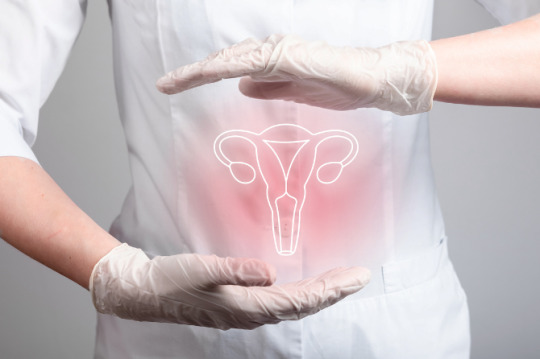
Cervical health is a crucial aspect of a woman's overall well-being, yet it is often overlooked or neglected. The cervix is a small but mighty organ that plays a significant role in a woman's reproductive system. It is the lower part of the uterus that connects to the vagina, and it is responsible for producing mucus that helps sperm travel to the egg during ovulation. However, the cervix is also susceptible to various health issues, including infections, abnormal cell growth, and cancer. Therefore, it is essential to understand the importance of cervical health and how to maintain it.
Also Read: Best IVF Centre in Indore
One of the first things to know about cervical health is the importance of regular screenings. The most common screening test for cervical health is the Pap smear, which involves collecting cells from the cervix and examining them for any abnormalities. This test can detect early signs of cervical cancer, making it a crucial tool for early detection and treatment. The American Cancer Society recommends that women between the ages of 21 and 65 should undergo a Pap smear every three years, while women over 30 can opt for a combination of Pap smear and HPV test every five years.
Another crucial aspect of cervical health is understanding the risk factors for cervical cancer. The most significant risk factor is the human papillomavirus (HPV) infection. HPV is a sexually transmitted infection that can cause changes in the cells of the cervix, leading to cervical cancer. Other risk factors include smoking, a weakened immune system, and a family history of cervical cancer. It is essential to be aware of these risk factors and take necessary precautions, such as practicing safe sex and quitting smoking, to reduce the chances of developing cervical cancer.
Now that we understand the importance of regular screenings and the risk factors for cervical cancer, it is vital to know where to go for the best care. Finding the right gynecologist is crucial for maintaining good cervical health. In Indore, there are many gynecologists, but finding the best gynecologist in Indore can be overwhelming. However, there are a few things to keep in mind while searching for the best gynecologist. Firstly, look for a gynecologist who specializes in cervical health and has experience in performing Pap smears and other cervical screenings. It is also essential to find a gynecologist who makes you feel comfortable and is approachable, so you can openly discuss any concerns or symptoms you may have.
0 notes
Text
Understanding Vaginal Infections: What Causes Them

As women, we are often bombarded with information about how to take care of our reproductive health. We are told to eat a balanced diet, exercise regularly, and practice safe sex. However, despite our best efforts, sometimes we may still experience vaginal infections. These infections can be uncomfortable, embarrassing, and even painful. It is important to understand what causes these infections and how to prevent them. In this blog post, we will discuss the common causes of vaginal infections and the importance of seeking help from the best gynaecologist in Indore.
The vagina is a self-cleaning organ that produces natural secretions to maintain a healthy balance of bacteria. However, sometimes this balance can be disrupted, leading to an overgrowth of harmful bacteria or yeast. This can result in a vaginal infection. The most common types of vaginal infections are bacterial vaginosis, yeast infections, and trichomoniasis.
Bacterial vaginosis (BV) is caused by an overgrowth of bacteria in the vagina. This infection is not considered a sexually transmitted infection (STI), but it can be triggered by sexual activity. BV is more common in women who have multiple sexual partners or engage in douching. The symptoms of BV include a foul-smelling vaginal discharge, itching, and burning during urination.
Yeast infections, on the other hand, are caused by an overgrowth of yeast in the vagina. This type of infection is not considered an STI and can occur due to hormonal changes, antibiotics, or a weakened immune system. The symptoms of a yeast infection include a thick, white discharge, itching, and burning in the vaginal area.
Trichomoniasis is an STI caused by a parasite. It is usually transmitted through sexual intercourse and can also be passed from mother to baby during childbirth. The symptoms of trichomoniasis include a frothy, yellow-green vaginal discharge, strong odor, and pain during urination or sexual intercourse.
Also Read: Uterine Fibroids Treatment in Indore
Now that we understand the common causes of vaginal infections, it is important to know how to prevent them. Practicing good hygiene, avoiding douching, and wearing breathable underwear can help maintain a healthy balance of bacteria in the vagina. It is also important to practice safe sex and limit the number of sexual partners to reduce the risk of STIs. Additionally, avoiding the use of scented products in the vaginal area can also help prevent infections.
0 notes
Text
How to Recognize the Signs of Ovarian Cancer?
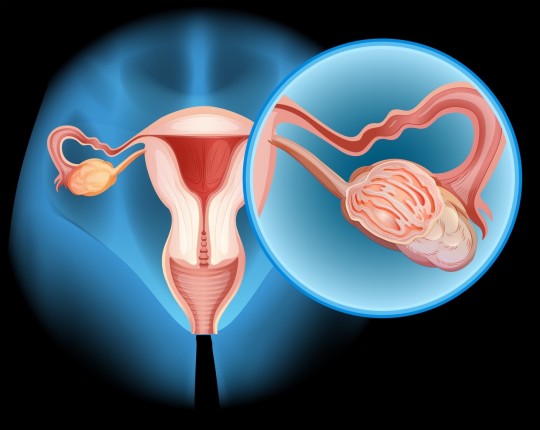
Ovarian cancer is a type of cancer that affects the ovaries, the female reproductive organs responsible for producing eggs and hormones. It is the seventh most common cancer among women and the fifth leading cause of cancer deaths in women. The American Cancer Society estimates that about 21,750 women in the United States will receive a new diagnosis of ovarian cancer in 2020, and about 13,940 women will die from this disease. These statistics highlight the importance of being aware of the signs and symptoms of ovarian cancer and seeking medical attention if you experience any of them. In this blog post, we will discuss how to recognize the signs of ovarian cancer and the role of the best gynaecologist in Indore in early detection and treatment.
1) Persistent abdominal or pelvic pain:
One of the most common symptoms of ovarian cancer is persistent pain in the lower abdomen or pelvic area. This pain may feel dull or sharp and may come and go. It is important to note that this pain is not related to your menstrual cycle and does not go away with over-the-counter pain medication. If you experience this type of pain for more than a few weeks, it is important to consult a gynaecologist.
2) Bloating:
Feeling bloated or full even after eating a small amount of food can be a sign of ovarian cancer. This bloating may be accompanied by a feeling of pressure in the abdomen. If you notice that your clothes are fitting tighter or you are having trouble buttoning your pants, it is important to get it checked out by a gynaecologist.
3) Changes in bowel habits:
Ovarian cancer can also cause changes in your bowel movements, such as constipation, diarrhea, or a feeling of incomplete bowel movements. These changes may occur suddenly and persist for more than a few weeks. If you notice any significant changes in your bowel habits, it is important to consult a gynaecologist in Indore.
4) Difficulty eating or feeling full quickly:
Many women with ovarian cancer experience a loss of appetite or a feeling of fullness even after eating a small amount of food. This is due to the pressure that the growing tumor puts on the stomach and other organs. If you have been experiencing a lack of appetite or feeling full quickly, it is important to get it checked out by a gynaecologist.
Also Read: Laparoscopic Surgeon in Indore
0 notes
Text
How Stress Impacts Reproductive Health, What Coping Strategies Work?

Stress is a common part of our daily lives, and it can affect us in many ways. From causing headaches and sleepless nights to impacting our relationships and work, stress can have a significant impact on our overall well-being. However, one area that is often overlooked when it comes to the effects of stress is our reproductive health. As a gynaecologist in Indore, I have seen first-hand how stress can impact the reproductive health of my patients. In this blog post, I will discuss how stress affects reproductive health and share some coping strategies that can help.
The Impact of Stress on Reproductive Health
Stress can have a direct impact on our reproductive health in several ways. One of the most common effects is the disruption of the menstrual cycle. When we are stressed, our bodies produce higher levels of the hormone cortisol, which can suppress the production of estrogen and progesterone, leading to irregular or missed periods. This can make it difficult for women to conceive, and in some cases, it can even lead to infertility.
Stress can also affect our libido and sexual function. When we are stressed, our bodies go into "fight or flight" mode, which can decrease our desire for sex and make it difficult to become aroused. This can lead to problems in the bedroom and put a strain on relationships.
In addition, stress can also impact the male reproductive system. High levels of stress can decrease sperm count, sperm motility, and sperm quality, making it more challenging for couples to conceive.
Also Read: Top IVF Center in Indore
Coping Strategies for Managing Stress
Now that we understand the impact of stress on reproductive health let's discuss some coping strategies that can help manage stress and improve reproductive health.
1) Exercise: Regular physical activity can help reduce stress levels and improve overall well-being. Exercise releases endorphins, which are natural mood-boosters, and can help regulate hormone levels.
2) Practice relaxation techniques: Activities like yoga, meditation, and deep breathing can help calm the mind and reduce stress levels. These techniques can also help improve sleep quality, which is essential for managing stress.
Also Read: Best Laparoscopic Surgeon in Indore
3) Seek support: Talking to a trusted friend, family member, or a therapist can help alleviate stress. It is essential to have a support system to lean on during challenging times.
4) Prioritize self-care: Taking care of yourself is crucial for managing stress. Make time for activities that you enjoy, get enough sleep, and eat a healthy, balanced diet.
0 notes
Text
How Hormonal Imbalance Affects Women's Health?
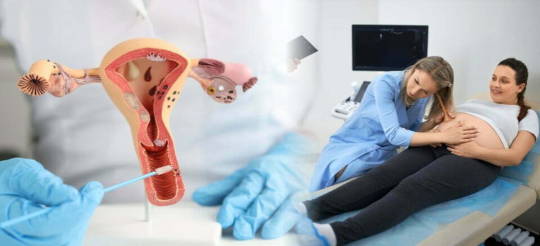
Hormonal imbalance is a common health issue that affects women of all ages. It occurs when there is an excess or deficiency of certain hormones in the body, which can have a significant impact on a woman's overall health and well-being. From mood swings to irregular periods, hormonal imbalance can cause a wide range of symptoms that can disrupt a woman's daily life. In this blog post, we will discuss how hormonal imbalance affects women's health and why it is essential to seek the help of the best gynaecologist in Indore.
Hormones play a crucial role in regulating various bodily functions, including metabolism, reproduction, and mood. When these hormones are not in balance, it can lead to a variety of health issues. One of the most common symptoms of hormonal imbalance is irregular periods. Women with hormonal imbalance may experience missed periods, heavy bleeding, or prolonged periods. This can be a sign of an underlying health condition like polycystic ovary syndrome (PCOS) or thyroid disorder, which can impact fertility and overall health.
Another common effect of hormonal imbalance is changes in mood and emotions. Fluctuations in estrogen and progesterone levels can cause irritability, anxiety, and even depression in women. These hormonal changes can also affect sleep patterns, leading to fatigue and low energy levels. Moreover, hormonal imbalance can also cause changes in appetite, leading to weight gain or weight loss. These symptoms can significantly impact a woman's mental and emotional well-being, affecting her relationships and daily life.
Also Read: IVF Centre in Indore
Hormonal imbalance can also take a toll on a woman's reproductive health. It can lead to fertility issues, making it difficult for women to conceive. In some cases, hormonal imbalance can also cause painful periods, making it challenging to carry out daily activities. It can also increase the risk of developing conditions like endometriosis, which can cause severe pelvic pain and affect a woman's quality of life.
If left untreated, hormonal imbalance can also have long-term effects on a woman's health. It can increase the risk of developing chronic diseases like diabetes, heart disease, and osteoporosis. It can also affect the health of the reproductive organs, leading to complications during pregnancy and childbirth.
Now that we understand the impact of hormonal imbalance on a woman's health, it is crucial to seek the help of a qualified gynaecologist. The best gynaecologist in Indore can diagnose the underlying cause of hormonal imbalance and provide appropriate treatment.
0 notes
Text
Why IVF Might Be Your Solution: Insights into Fertility Challenges?

For many couples, starting a family is a dream they have had since they were young. However, for some, this dream can be a challenging and emotional journey. Infertility is a common issue that affects approximately 12% of couples worldwide. It can be a difficult and frustrating experience, but thanks to advancements in medical technology, there is hope. In-vitro fertilization (IVF) has become a popular solution for couples struggling with fertility challenges. In this blog post, we will explore why IVF might be the solution for you and why the best IVF centre in Indore could be the right place to start your journey towards parenthood.
Firstly, let's understand what IVF is and how it works. IVF is a type of assisted reproductive technology (ART) that involves fertilizing an egg with sperm outside of the body in a laboratory. The fertilized egg, also known as an embryo, is then transferred into the woman's uterus, where it can develop and hopefully result in a successful pregnancy. This procedure is typically used when other fertility treatments have failed, or there are underlying issues that make it difficult for a couple to conceive naturally.
Also Read: Gynaecologist in Indore
One of the main reasons why IVF might be your solution is that it can help overcome various fertility challenges. These challenges can range from ovulation disorders, blocked or damaged fallopian tubes, endometriosis, or low sperm count. IVF bypasses these challenges by directly fertilizing the egg with sperm in a controlled environment, increasing the chances of a successful pregnancy. This makes it a viable option for couples who have been struggling to conceive for a long time.
Another advantage of IVF is that it offers a higher success rate compared to other fertility treatments. The success of IVF depends on various factors, such as the age of the woman, the cause of infertility, and the quality of the eggs and sperm. However, on average, the success rate of IVF in women under 35 is around 40-50%. This success rate decreases with age but is still a promising option for older couples who may have a lower chance of conceiving naturally.
Choosing the right IVF centre in Indore is crucial for a successful outcome. Indore, known as the commercial capital of Madhya Pradesh, is home to some of the best IVF centres in the country. These centres offer state-of-the-art facilities, experienced doctors, and a supportive environment for couples going through the IVF process.
0 notes
Text
IVF: Why It's a Viable Option for Fertility Challenges
In today's world, many couples face challenges when it comes to conceiving a child. Infertility has become a common issue, affecting millions of couples worldwide. While there are various treatments and solutions available, one of the most effective and popular options is In Vitro Fertilization (IVF). And when it comes to finding the best IVF Centre in Indore, there are several factors to consider.
IVF is a fertility treatment that involves fertilizing an egg with sperm outside of the body, in a laboratory setting. The fertilized egg, or embryo, is then transferred into the woman's uterus, with the hope of a successful pregnancy. This process has been a game-changer for many couples struggling with fertility challenges, providing them with a chance to fulfill their dream of parenthood.
One of the main reasons why IVF is a viable option for fertility challenges is its success rate. According to the Centers for Disease Control and Prevention, the success rate for IVF treatments in women under 35 is around 41%. While the success rate may decrease with age, it is still a significantly higher chance of conception compared to other fertility treatments. This is especially important for couples who have been trying to conceive for a long time and have not had any success.
Also Read: Gynaecologist in Indore
Moreover, IVF offers a range of options for couples with different fertility issues. It can be used for various causes of infertility, such as blocked fallopian tubes, endometriosis, male factor infertility, and even unexplained infertility. This makes it a suitable option for a wide range of couples, regardless of their specific fertility challenge.
Another benefit of IVF is that it allows for genetic testing of embryos before implantation. This means that couples can choose to select embryos that are free from genetic disorders or chromosomal abnormalities, reducing the risk of passing on any hereditary conditions to their child. This is a significant advantage for couples who have a family history of genetic disorders or are carriers of certain conditions.
When it comes to finding the best IVF Centre in Indore, it is essential to consider the expertise and experience of the doctors and staff. The success of IVF treatment depends greatly on the skills and knowledge of the medical team. The best IVF Centre in Indore will have a team of highly trained and experienced doctors, embryologists, and nurses who work together to provide the best possible care for their patients.
0 notes
Text
What Causes Uterine Fibroids?

Uterine fibroids are a common health issue that affects many women around the world. These non-cancerous growths in the uterus can cause a range of symptoms, including heavy and prolonged menstrual periods, pelvic pain, and even infertility. As a gynaecologist in Indore, I have seen many patients struggling with uterine fibroids and wondering what causes them. In this blog post, we will explore the possible causes of uterine fibroids and how they can be managed.
First, let's understand what uterine fibroids are. Also known as leiomyomas, uterine fibroids are muscular tumors that grow in the wall of the uterus. They can vary in size, from as small as a pea to as large as a grapefruit. While the exact cause of uterine fibroids is still unknown, there are several factors that can contribute to their development.
Hormonal imbalance is believed to be one of the main causes of uterine fibroids. Estrogen and progesterone, two hormones that regulate the menstrual cycle, can stimulate the growth of fibroids. This is why fibroids tend to grow during pregnancy when hormone levels are high and shrink after menopause when hormone levels decrease.
Also Read: IVF Specialist in Indore
Genetics also play a role in the development of uterine fibroids. If your mother or sister has fibroids, you are at a higher risk of developing them too. This suggests that there may be a genetic predisposition to fibroids, although the exact genes involved are yet to be identified.
Obesity is another risk factor for uterine fibroids. Studies have shown that women who are overweight or obese are more likely to develop fibroids. This could be due to the fact that excess fat tissue can produce estrogen, which can promote the growth of fibroids.
Other potential causes of uterine fibroids include age (they are more common in women in their 30s and 40s), race (African-American women are more likely to develop fibroids), and certain medical conditions such as polycystic ovary syndrome (PCOS).
While the exact cause of uterine fibroids remains unclear, there are ways to manage and treat them. As a gynaecologist in Indore, I often recommend a combination of lifestyle changes, medications, and surgical procedures to my patients.
0 notes
Text
What Are The Treatment Options For Uterine Fibroids?
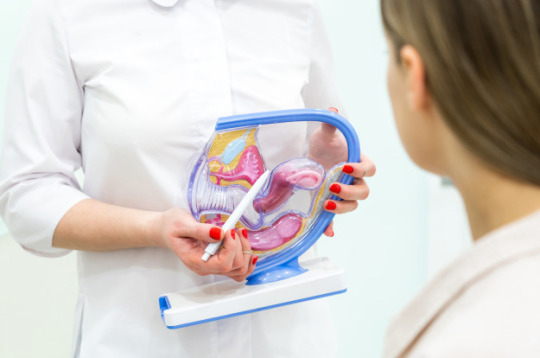
Uterine fibroids, also known as leiomyomas, are non-cancerous growths that develop in the uterus. While they are quite common, affecting up to 80% of women by the age of 50, they often do not cause any symptoms. However, in some cases, fibroids can lead to heavy and painful periods, pelvic pain, and even fertility issues. If you have been diagnosed with uterine fibroids, it is important to understand the treatment options available to you. In this blog post, we will discuss the various treatment options for uterine fibroids and how a lady gynaecologist in Indore can help.
1) Watchful Waiting
If your fibroids are small and not causing any symptoms, your gynaecologist may recommend a "watchful waiting" approach. This means monitoring the fibroids through regular check-ups and imaging tests, but not actively treating them. This option is usually recommended for women who are nearing menopause, as fibroids tend to shrink and disappear after menopause.
2) Medications
There are several medications that can be used to manage the symptoms of fibroids. These include non-steroidal anti-inflammatory drugs (NSAIDs) for pain relief, hormonal birth control to regulate heavy periods, and gonadotropin-releasing hormone (GnRH) agonists to shrink the fibroids. However, these medications do not treat the fibroids themselves and their effects are temporary.
3) Uterine Fibroid Embolization (UFE)
UFE is a minimally invasive procedure that involves blocking the blood supply to the fibroids, causing them to shrink and die. It is performed by an interventional radiologist and does not require any incisions. UFE has a shorter recovery time compared to surgery and is a good option for women who want to preserve their uterus.
Also Read: Laparoscopic Surgeon in Indore
4) Myomectomy
A myomectomy is a surgical procedure to remove fibroids while preserving the uterus. It is usually recommended for women who want to become pregnant in the future. Depending on the size, number, and location of the fibroids, a myomectomy can be performed through open surgery or minimally invasive techniques such as laparoscopy or hysteroscopy.
0 notes
Text
How Laparoscopic Surgery is Transforming Gynecological Procedures?

Gynecological procedures have come a long way in the past few decades, thanks to advancements in medical technology. One of the most significant developments in this field is laparoscopic surgery, which has transformed the way gynecological surgeries are performed. This minimally invasive surgical technique has revolutionized the field of gynecology, making procedures safer, less invasive, and more effective. In this blog post, we will discuss how laparoscopic surgery in Indore is transforming gynecological procedures and why it is becoming the preferred choice for both patients and doctors.
First, let's understand what laparoscopic surgery is. It is a surgical technique that uses small incisions and specialized instruments to perform surgeries. A laparoscope, a thin tube with a camera and light attached to it, is inserted through a small incision in the abdomen. This allows the surgeon to see inside the body and perform the surgery with precision. The procedure is also known as keyhole surgery or minimally invasive surgery.
One of the most significant advantages of laparoscopic surgery is that it requires only small incisions, unlike traditional open surgery, which involves large incisions. This means fewer traumas to the body, less bleeding, and a shorter recovery time. Patients who undergo laparoscopic surgery experience less pain, scarring, and risk of infection. This makes it an ideal choice for gynecological procedures, which involve delicate organs and tissues.
Laparoscopic surgery is transforming gynecological procedures in many ways. It is being used to treat a wide range of gynecological conditions, including endometriosis, ovarian cysts, fibroids, and even certain types of cancer. In the past, these conditions were treated with open surgery, which often required a longer hospital stay and a more extended recovery period. With laparoscopic surgery, patients can go home the same day or the next day, and resume their normal activities within a week or two.
Also Read: Uterine Fibroid Treatment in Indore
Another significant advantage of laparoscopic surgery is its precision. The laparoscope provides a magnified view of the internal organs, allowing the surgeon to perform complex procedures with greater accuracy. This is especially crucial in gynecological procedures, where the reproductive organs are small and delicate. With laparoscopic surgery, the surgeon can remove tumors, cysts, or damaged tissue without damaging the surrounding healthy tissue.
0 notes
Text
How Does The IVF Process Work?

In recent years, the use of in vitro fertilization (IVF) has become increasingly popular as a way for couples to overcome fertility issues and start a family. IVF is a complex and highly scientific process that involves combining eggs and sperm outside of the body and then transferring the resulting embryo into the uterus. But how exactly does the IVF process work? Let's take a closer look.
The first step in the IVF process is to undergo a thorough evaluation at an IVF centre in Indore or any other city. This evaluation includes a series of tests to assess the overall health and fertility of both partners. The female partner will undergo a pelvic exam, blood tests, and ultrasound to check the health of her ovaries and uterus. The male partner will provide a semen sample for analysis.
Once the evaluation is complete and both partners are deemed suitable candidates for IVF, the next step is ovarian stimulation. This involves taking medication to stimulate the ovaries to produce multiple eggs. The goal is to produce more than one egg as the chances of success increase with the number of eggs retrieved.
During this time, the woman will be closely monitored through blood tests and ultrasounds to track the growth and development of the eggs. When the eggs are mature, a trigger shot is given to help them reach the final stage of maturation.
The eggs are then retrieved through a minor surgical procedure called transvaginal ultrasound aspiration. This involves using a thin needle to collect the eggs from the ovaries. The procedure is usually done under sedation to minimize discomfort.
Also Read: Best Gynaecologist and Obstetrician in Indore
Next, the eggs are fertilized with the sperm in a laboratory setting. This can be done through traditional IVF, where the eggs and sperm are placed together in a dish, or through intracytoplasmic sperm injection (ICSI), where a single sperm is injected directly into the egg. The fertilized eggs are then monitored for a few days to ensure proper development.
Once the embryos have reached a certain stage, they are ready to be transferred into the woman's uterus. This is a relatively simple procedure that involves placing a thin catheter through the cervix and into the uterus to deposit the embryos. The number of embryos transferred will depend on various factors, including the woman's age and the quality of the embryos.
After the transfer, the woman will undergo a two-week wait to see if the embryos have successfully implanted. If the implantation is successful, a pregnancy test will be done to confirm the pregnancy.
0 notes
Text
Are There Age Restrictions For IVF?
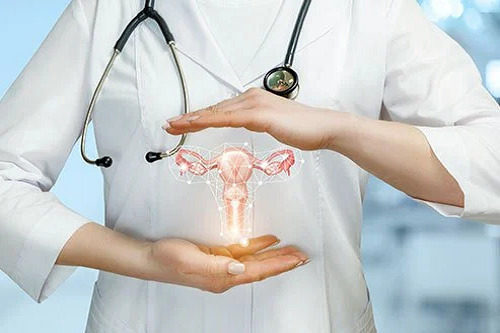
In today's world, many couples are facing difficulty in conceiving a child naturally. This has led to the rise in popularity of In-Vitro Fertilization (IVF) as a viable option for starting a family. However, one question that often arises is whether there are age restrictions for IVF. In this blog post, we will explore this topic and provide some insights.
Firstly, let's understand what IVF is. IVF is a type of assisted reproductive technology (ART) where an egg is fertilized by sperm outside the body in a laboratory. The fertilized egg, or embryo, is then transferred into the woman's uterus for implantation and pregnancy. This procedure is commonly used for couples who are struggling with infertility due to various reasons such as advanced age, blocked fallopian tubes, or male factor infertility.
Now, coming to the main question, are there age restrictions for IVF? The answer is not a straightforward yes or no. While there is no legal age limit for IVF, most fertility clinics have their own guidelines and restrictions. Generally, women over the age of 45 are not considered suitable candidates for IVF due to the potential risks involved. This is because as a woman ages, her egg quality and quantity decrease, making it difficult to achieve a successful pregnancy through IVF.
Also Read: Infertility Specialist in Indore
On the other hand, there is also a lower age limit for IVF. Most clinics require a woman to be at least 18 years old to undergo the procedure. This is to ensure that the woman is emotionally and mentally prepared for the physical and emotional demands of IVF.
Apart from the age of the woman, the age of the male partner also plays a role in determining the eligibility for IVF. Generally, men over the age of 50 are not recommended for IVF as they may have a lower sperm quality and quantity, which can affect the success of the procedure.
Furthermore, the age of the couple as a whole is also taken into consideration. If the combined age of the couple is too high, it may increase the risks associated with IVF, such as pregnancy complications and birth defects.
It is important to note that these age restrictions may vary from one IVF centre to another. Some clinics may have more stringent guidelines, while others may be more lenient. It is always best to consult with a fertility specialist at an IVF centre in Indore to determine if you are a suitable candidate for IVF.
0 notes